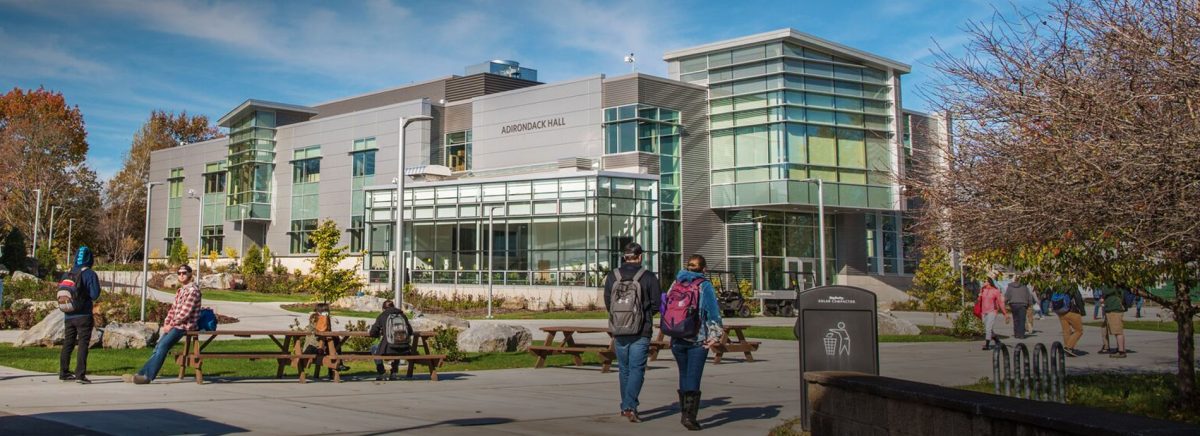There are a few months left until graduation and only a few more than that until college for those attending. The Johnny Green wanted to help Weedsport’s Class of 2024 be as prepared as possible.
Depending on what college you are attending there are always different rules. One super important thing to remember is to check on their policies on things like cars, parking, and appliances.
Parking and Cars: Most schools like SUNY Cortland must have their cars registered but some schools like Le Moyne require a fee per semester to have your vehicle on campus. If you are comfortable with bringing your car make sure you get it registered, know where to park, have readable and viewable license plates, and pay the fees if needed. If not there are lots of on campus buses and outside transportation. You would be completely fine either way as long as you had a ride when you wanted to travel somewhere further or go back home.
Storage Options/Ideas: There is definitely limited space when it comes to dorms. You want to conserve as much space as possible. I recommend leaving things at home or even donating them if they are not needed. If you end up needing it you can always get it the next time you go home. You usually will be provided a desk, dresser, and some type of closet space. You want to take advantage of that as much as possible. Amazon, Walmart, Target, The Dollar Store, and even Shein have affordable options for organizers and space savers.
Must Haves: Some must haves include medicine and first aid. You don’t want to have to go right out to the store or back home the first time you get sick or need a Band-Aid. Pack yourself a little makeshift first aid kit with the basic medicines like cold medicine, allergy medicine, ibuprofen, cough drops, etc. Also tissues, and Band-Aids. Don’t forget extra chargers and your devices. You’re definitely gonna need to break out your old computer if you don’t get a new one or are given one by your school. Don’t overpack but stock up on necessities you will go through quickly. Toothpaste, hygiene, shower products, trash bags.
What To Leave at Home: Do not bring all your clothes. If it is possible to leave stuff at home, do it. You can switch out your clothes between seasons. If it’s winter, leave your summer wardrobe at home, and when it gets cold out again, switch. You are not gonna have enough space for everything you own. I highly suggest getting rid of any products, items, decorations, or clothes that you’re not using and you know you’re never going to use or wear.
Downsizing: Downsizing can be super hard. Your stuff usually isn’t just compacted to your room. You are going from a whole house to a dorm room. With proper storage and downsizing you’ll be able to bring everything you need, not necessarily everything you own.
Wardrobe: Again like I said a season switch is the smartest thing to do if that is possible for you. It’s always nice to get new clothes for school but definitely don’t go too overboard if you are already bringing a lot of stuff that you already have.
Getting Around Campus: Especially with a bigger campus you don’t want to be lost your whole first semester. Even with a small campus it can be hard to find your classes at first. There are a few ways you can try and know your way around campus a little better. 1. Take some walks around campus to try and get a feel of what ways to go, and how far it is from your dorm or bus stop. 2. Keep note of things you pass on the way in case you can’t remember your way back or your way there next time. 3. If you have your roommates and they are at your dorm, use a map to direct you back to where they are after class. 4. Before school starts, find some people in the same classes/major as you so you could go to class together. They may know their way around better than you, especially if they’re not freshmen. Lastly, you can always get a paper or online map of your campus, which is the obvious one but you might not always have that on hand.
Moving In: Make sure you are well aware of what your move in date is at your school and orientation. Every school is different and you definitely would not want to miss either thing.
Surrounding Area: It is helpful to know what’s in the surrounding area whether you have a car or not. You should look beforehand what stores and things are within walking distance and where the bus stops are.
Breaks: Usually in college you get much longer breaks than in high school. You also get them at different times. So be prepared when you won’t have classes, and when you should be ready to head back home for a week or two. On top of that, definitely unplug everything and empty your fridge when you are planning to be gone for more than just a couple days. You don’t want to come back to a moldy fridge.
Getting a Job: Yes? No? When? Definitely get a job in college if you can. You don’t want to have to be scrounging for pennies your entire college years, but don’t overwhelm yourself. Just a part time, not too stressful job. So you’re able to go to class, have your homework done, study, but also support yourself. I suggest at least waiting a few weeks so you can get settled in with your dorm and classes before you get a job if possible. It can be a big change and you don’t want to put too much on your plate at once.
Balancing Social Life and Academics: This can be a tough one for college students. Usually people either have way too much social life and lose focus of their academics or are way too focused on them and have a hard time making friends or going to events. It may be difficult but you have to find a balance. In your free time yes work, do your homework, study, but also make time for your friends and meeting new people. That can even include talking to a new person in one of your classes or going to do homework with your friends in the library.
Keeping On Track: Remembering a lot of information and studying can be hard. It’s much easier to push off until the last minute or even all together. But in college grades are much more serious and teachers are not the same. You and you only are responsible for getting everything done and doing it right. If you are not good at holding yourself accountable, make some flash cards, and have your friend quiz you until you get them right. Whatever you can’t remember, try and write it down in a way it will stick with you. And if you can’t do that, take notes and class and rewrite the most important parts to help you see them again, and not forget them right away. If you are really struggling with the material, maybe even email or speak to your professor on going an extra step to ensure you are prepared and where you are supposed to be.







